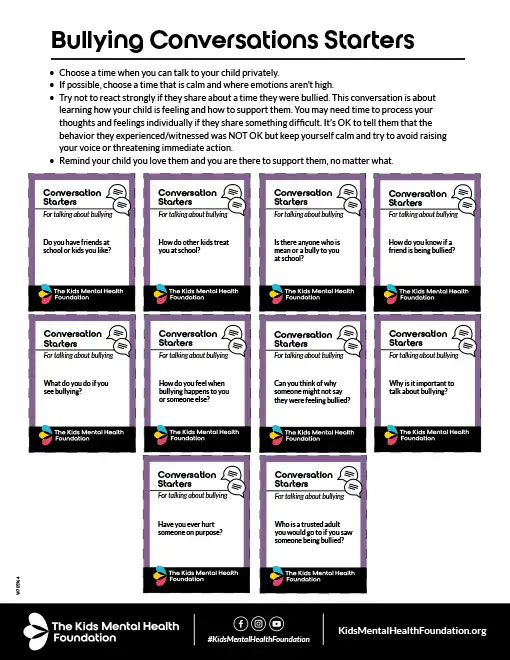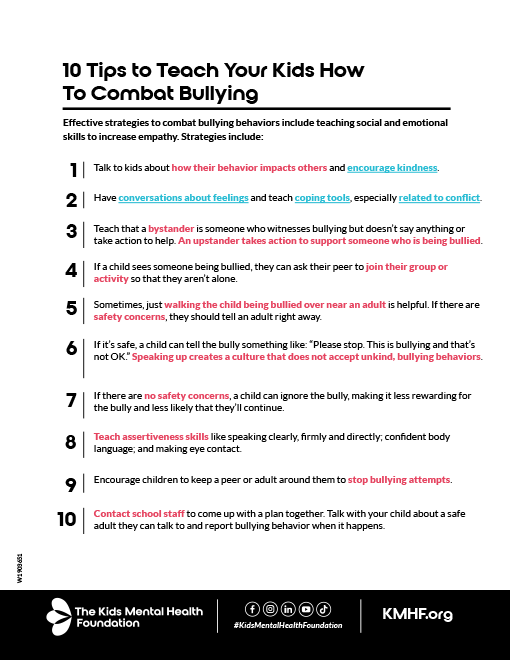- Bullying is intentional harm that can be verbal, social or physical. Bullying can have negative mental health effects on the victim, the bully and witnesses.
- Talking with children about bullying can help them recognize it, know how to respond and think about trusted adults they can turn to for support.
Bullying Resources
Children who are bullied are at higher risk for mental health concerns. But how do you know if your child is being bullied? How can you ask about it? And if there is a bullying situation, what should you do?
We have conversation starters so that you can talk with kids about what they're seeing. And we have advice on how to prevent and stop bullying.
Kids participating in bullying behaviors need help as well. What are the signs that a child may be bullying and what can you do? We have ideas on where to start.
There are also ways to prevent bullying – by teaching kids kindness, empathy and social skills.


